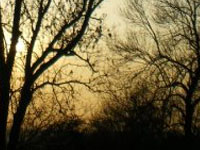RCC Newsletter, Issue 23
September 2015
15.09.2015
Dear Friends of the RCC,
Phase II of the Carson Center is now officially underway. The first fellows of this funding phase have arrived and new publications, portal exhibitions, and events are all in the pipeline for the coming months. We are especially excited about the launch of the ITN (innovative training network) ENHANCE (Environmental History for a Concerned Europe) which starts on 1 October; three doctoral students (of the total group of 12) will be housed at the RCC and one at the Deutsches Museum as part of this EU-sponsored collaboration with Leeds University and KTH Stockholm.
- Interested in joining our team? The RCC is currently recruiting for two positions: a research associate for the Environment & Society Portal and a graduate editor/communications associate.
- The 2015 Turku Book Prize was awarded to Gregory T. Cushman for his monograph, Guano and the Opening of the Pacific World: A Global Ecological History at the biennial ESEH Conference in Versailles. The prize is awarded jointly by the RCC and the ESEH for outstanding research in environmental history published in the prior two years. Gregory will be a Carson fellow from September through December 2015. In addition, RCC doctoral candidate Martin Meiske won the 2015 best poster award at the conference.
- Publications Update: Volume 6 in the RCC-sponsored book series “The Environment in History” was released during the ESEH conference in July: Fault Lines by RCC alumnus Giacomo Parrinello looks at earthquakes and modernization in Italy. The English catalogue for the exhibition “Welcome to the Anthropocene” has also been published.
Two new issues of RCC Perspectives have appeared. With contributions by scholars working on history, colonialism, literature, and game theory, “The Imagination of Limits” (edited by Frederike Felcht and Katie Ritson) looks at the aesthetics and politics of scarcity (and abundance). “Unruly Environments,” edited by Siddhartha Krishnan, Christopher L. Pastore, and Samuel Temple, examines the multiple ways in which nature both attracts and resists human efforts to control and manage it. - The Environment & Society Portal has launched both a new virtual exhibition, “Famines in Late Nineteenth-Century India” as well as a new thematic collection, “Rights of Nature Recognition: Law and Ethics in Dialogue” on Arcadia. In August, Kim Coulter and Martin Spenger presented on the Portal and its affiliated blog Ant Spider Bee: Exploring Digital Environmental Humanities at the PressForward Institute for Scholarly Communication at George Mason University as partners of the Roy Rosenzweig Center for History and New Media (read about the scholarly blog and alternative metrics here).
- Present and former members of the RCC’s doctoral program, “Environment and Society,” have received a slate of awards and grants in the last few months.
- Call for Proposals:
The Anthropocene in Museums: Reflections, Projections and Imaginings - deadline 2 October - Recent Events:
The fifth annual meeting of the Forum Tiere und Geschichte (Forum Animals and History) explored how environmental history and the history of human-animal relations can mutually enrich each other through topics such as “animals in natural disasters,” “the history of the ocean as a biosphere,” and “multispecies ethnography.”
The workshop “Anthropocene Objects and Environmental Futures” brought together the winners of the 2014 Anthropocene Slam for the opening of the Cabinet of Curiosities exhibition. It is on display as part of the exhibition “Welcome to the Anthropocene: The Earth in our Hands” at the Deutsches Museum.
At the “Interpreting Vulnerabilities Roundtable,” participants from a variety of disciplines examined vulnerabilities in the wake of environmental change, including “tipping points,” the loss of livelihoods or homes, threats of extinction, and the disempowerment of citizens.
Agent Orange, the most infamous of the defoliating herbicides used by the US military during the Vietnam War, offers a historical lesson and legacy. The conference “Toxic Legacies—Agent Orange as a Challenge” examined this chapter of the Vietnam War in the context of a broader discussion of comparable military and civil environmental disasters.
Design and designers hold an ambiguous place in contemporary environmental discourse. At the workshop “Back to the Sustainable Future: Visions of Sustainability in the History of Design,” historians of design and technology discussed the role of technology and material culture in discourses of environmental change.
The conference “Manufacturing Landscapes—Nature and Technology in Environmental History” in Beijing, China, asked how technologies—from waterworks and roads to pesticides and coal power—have been shaped by their environmental conditions and in turn have reshaped the earth, creating new landscapes.
“Animals in Transdisciplinary Environmental History” was the theme of the 2015 ESEH summer school; graduate students and mentors explored our changing relationships with animals. Papers looked at animals as resources, helpers, and historical agents in their own right; the tools of archaeology helped reveal how animals can be a lens to understand past environmental transformations. - Upcoming Events:
14-15 Sept: Global Deserts: Environmental History in the Arid Lands (Conference in Arizona)
15 Oct: Lunchtime Colloquium resumes, KHG, Leopoldstr. 11, Munich
16-17 Oct: Human Niche Construction (Workshop at the RCC)
29-31 Oct: Trans-Environmental Dynamics: Understanding and Debating Ontologies, Politics, and History in Latin America (Conference at LMU) - Alumni News: Congratulations to Nicole Seymour, whose monograph won the 2015 ASLE Ecocriticism book award. Franziska Torma, Marianna Dudley, and Wilko Graf von Hardenberg have all taken up new positions. The following alumni fellows have announced new publications, all of them major book or article projects: Sigurd Bergmann, Emily Brock, Peter Cox, Mike Hulme, Siddhartha Krishnan, Kieko Matteson, and Shiho Satsuka. John Agbonifo and Bron Taylor have been active organizing conferences and conference panels that also include several RCC alumni.
- Staff News: RCC Director Christof Mauch was awarded the 2015 international ‘Planetary Award’ from the Design Me a Planet Initiative in June.
As always, to stay up to date on the RCC, check out our website, Facebook page, and blog, or follow us on Twitter.
Best wishes,
The Rachel Carson Center


